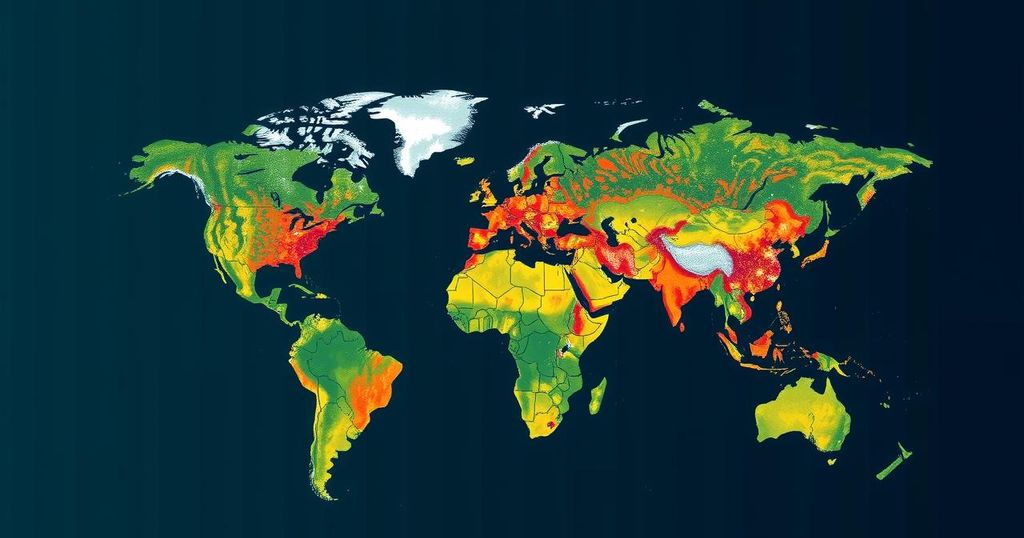A £3 million research project named RESHAPE is examining the impact of climate change on healthcare system resilience worldwide. The initiative focuses on regions experiencing extreme weather events, such as Malawi, Vietnam, Tanzania, and Uganda, aiming to identify effective strategies for improving healthcare responses to climate-related challenges. Dr. Brahim Herbane leads the research, collaborating with local partners to develop a new standard for healthcare resilience policy.
A groundbreaking research initiative named RESHAPE (Resilience in Health Post-Extreme Weather Events) has commenced, backed by a £3 million grant, to examine the effects of climate change on the resilience of healthcare systems worldwide. This project unites scholars and communities across continents, particularly focusing on the responses of various populations to environmental upheavals adversely impacting hospitals and health service providers. Research teams are actively engaged in Malawi, Vietnam, Tanzania, and Uganda, regions experiencing a rising frequency of extreme weather linked to climate change, which threatens access to essential healthcare for millions. Dr. Brahim Herbane of De Montfort University Leicester, who has conducted extensive research on business resilience, serves as the business continuity lead for this endeavor. He will be visiting each participating locale to collaborate with existing partners and stakeholders. Dr. Herbane noted, “The premise is that the effects of climate change are increasing, and we are seeing more extreme weather events which will then impact on healthcare. The research looks at how healthcare systems currently mitigate those impacts and how we can co-create more resilient systems.” During preliminary studies in Malawi, Dr. Herbane recounted difficulties posed by severe weather: “We went to a village for a community engagement and involvement meeting and it was raining intensely, to the point where we couldn’t actually hear each other in the meeting…the hospital where we were due to visit next was completely flooded. The hospital staff were stoical about the disruption they faced, but to witness a torrent of water running through a hospital building served as a reminder of why this research project will be beneficial to vulnerable communities.” The research is spearheaded by the University of East Anglia, with aims to illuminate challenges faced by healthcare systems and to devise strategies to safeguard them against the escalations of climate crises. Dr. Herbane emphasized the project’s goals: “Ultimately, we want to develop a new international standard for healthcare system resilience and to reshape healthcare resilience policy.” The initiative is funded by the National Institute for Health and Care Research (NIHR) through UK international development financing, promoting global health research. Key partners include Kamuza University of Health Sciences and the Patient and Community Welfare Foundation in Malawi, the Mwanza Intervention Trials Unit in Tanzania, Mbarara University of Science and Technology in Uganda, and others.
As the impacts of climate change become increasingly pronounced, healthcare systems across the globe face significant challenges in maintaining resilience against extreme weather events. The rising frequency of flooding, hurricanes, and other severe weather phenomena can disrupt healthcare delivery, jeopardizing the wellbeing of vulnerable populations, particularly in low- and middle-income countries. This research initiative, RESHAPE, seeks to address these pressing issues by exploring how various healthcare systems respond to climate threats and identifying effective strategies for enhancement.
In conclusion, the RESHAPE project represents a pivotal step in understanding and improving the resilience of global healthcare systems against the backdrop of climate change. By investigating real-world responses and engaging with impacted communities, researchers aim to develop a comprehensive framework for enhancing healthcare resilience, ultimately contributing to better health outcomes for populations facing climate-induced challenges.
Original Source: www.dmu.ac.uk







